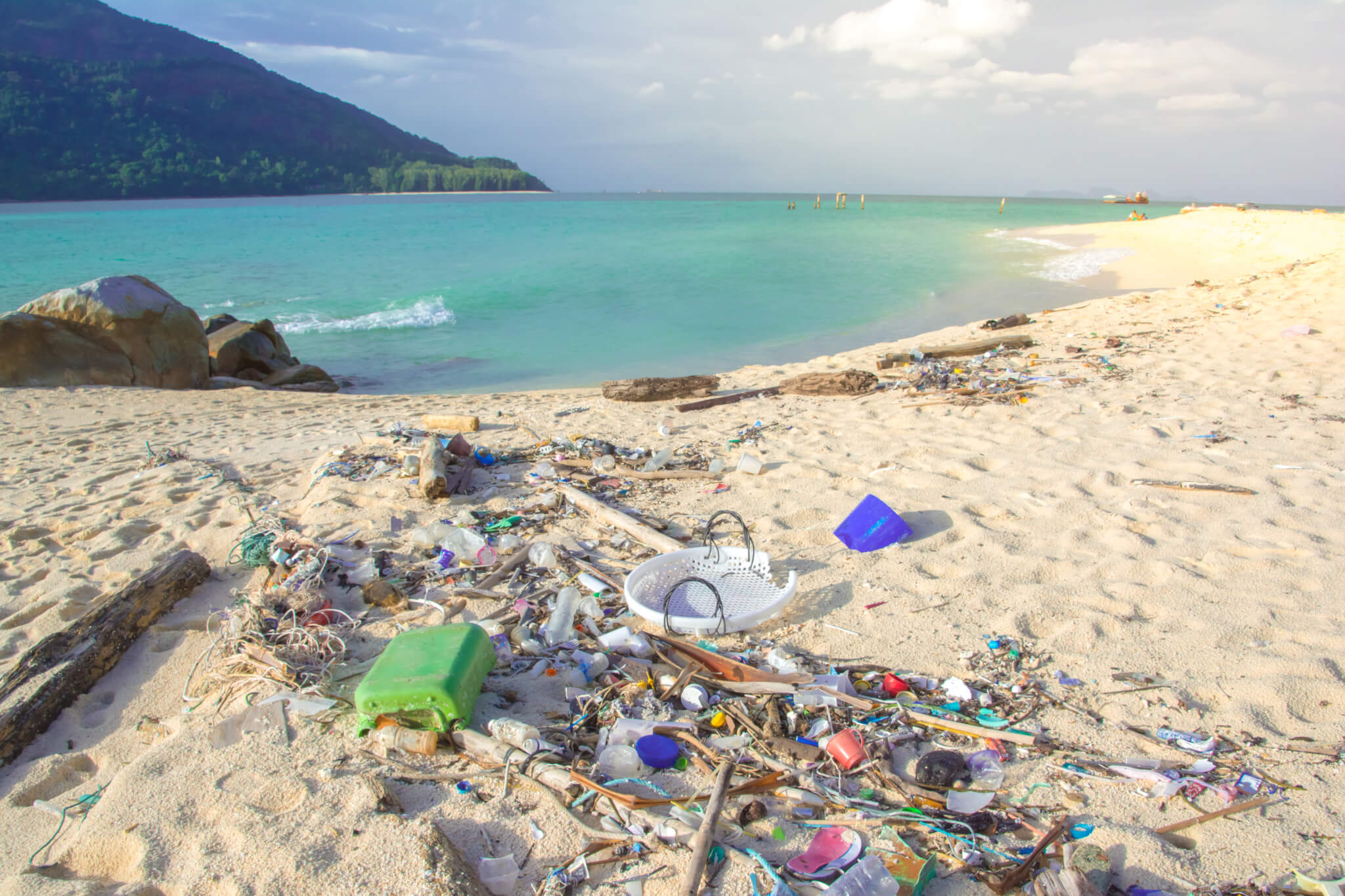It's 2019, and let's be real – depressing sh*t is happening. We're pushing animals to extinction at an alarming rate. Sea levels are rising. The planet is drowning in plastic. Corruption in many countries is worsening. Over-tourism is dissolving cultures worldwide. It feels like the beginning of the end and yet, many have cemented their heads in the garbage-laden sand.
While certain regions, governments, and corporations are largely to blame, this doesn't grant the rest of us the right to inaction. If we globe trot, then we too are contributing to these crises. By accepting this prickly fact, we can then choose to make our travels part of the problem or the solution. After all, indecision is a decision, and inaction is an action.
What is responsible travel? Why should I care?
Responsible travel means travelling in a way that is ethically-minded to protect the planet and its inhabitants. That includes awareness of the impact our travels have on the environment, humanity, culture, and wildlife. In other words, it means caring for the very essences that lure us to travel at all.
Is all travel bad for the planet?
Technically, yes. All forms of travel inflict damage to our planet in some way. Frankly, this sucks. But given that modern existence demands and encourages human movement, it's a fact we have to face. Whether for work, study, family, leisure, or love, so long as humans are here, we will wander the planet.
So, then what? Do we burn our passports? Spread anti-holiday propaganda on Facebook? Protest local travel agencies? From a realistic standpoint, nope. Our planet is expansive and complex and as much, so are the number of ways to help it. We just have to be willing to hear what we're doing wrong, and how we can fix it.
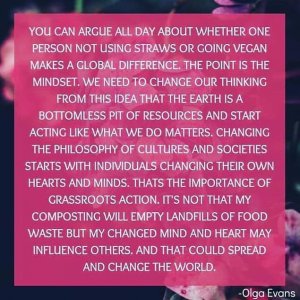
Does travel do any good?
Without a doubt, yes. This is backed by academic research and organizations that monitor the impact of tourism, migration, protection of historic and natural sites, and more. Travel, when done with awareness, can and does make the world a better place. Here are some examples how:
Protects historic sites, wildlife & environment
- Formation of national parks & world heritage sites
- Boom in eco-tourism & volunteering
- Creation of United Nations World Tourism Organization (UNWTO) and the United Nations Environmental, Scientific and Cultural Organization (UNESCO)
Alleviates poverty
Levels playing field for jobs
- Tourism has created jobs that don't require education or prior experience
- Examples include homestays, AirBNB, homestays, farm stays, local tours, and the sharing economy. Many of these only require an internet connection or even offline advertising (e.g. word of mouth or printed signage)
Increases empathy & creativity
- Travel and exposure to diversity increases both compassion and empathy
- Travel challenges us in new environments and experiences, which also enhances creativite thinking
- Firsthand exposure can leave a lifelong impact, prompting career changes, inspiring studies (it did for me), or general interest in global welfare and charity
How to travel with ethics
Heads up: there's a lot we can all improve on here. But we mustn't abandon hope just because we can't attain perfection. Every action matters.
That said, grab a steaming cup of coffee or a big ol' glass of wine. Our world is enormous, and so too are the action-items we can take to save it. There's a lot to cover here, but don't dismay (nor shame others) for not doing everything right. Heck, you're already in the right place in reading this. Focus first on the most feasible changes you can make, one by one. Ready? Let's get into it!
Use your voice for change
It's true that the greatest impact on today's global issues comes from higher levels, not individual efforts. Fortunately, you have much more power than you think.

Social media, e-mail, blogs, and online petitions have provided us with the most accessible, far-reaching speech podiums in history. Here's how you can use these modern privileges to place the pressure back on those causing the most harm:
- Speak to management. Voice in person or by e-mail (here's how to do the latter effectively). Indicate the problem & its impact (e.g. loss of your business if use of disposables continues). Feel free to namedrop other businesses leading by example.
- Write online reviews. Platforms like Google and Tripadvisor are powerful tools in influencing traveller's decision-making. Bring up issues loud & clear (and kindly!) in reviews to raise awareness and possibly garner a reply from management.
- Start an online petition. Yes, these actually work, albeit with greater success with larger organizations. Change.org is most popular, with major wins like ending Seaworld's orca breeding program & orca shows. On a smaller scale, a 4th-grade class successfully petitioned for the film, “The Lorax” to revise its trailer and film to better reflect the book's original environmental message. No voice is too small!
- Tag & write to tourism boards. Shocked by the garbage-strewn beaches of a supposed hotspot? Disappointed by a lack of garbage bins? Instagram or Facebook (ensure your post is “public” if you wish for them to see it). Tag away & write to local tourism boards &/or governments to visualize the issue and your dismay.
- Start trash clean-ups. Lead by example – put callouts online and start beach, forest, or trail for clean-ups wherever you're travelling. A #trashtag challenge initiated on Reddit went viral globally and inspired clean-ups in countries around the world. There's no reason to stop this momentum!
- Find organizations in line with your cause. Passionate about animal welfare? Disgusted by a tourist hotspot's garbage-strewn beach? Google and see if you can find local or national organizations that you can collaborate with for campaigns (such as petitions), events, and other ways you can help.
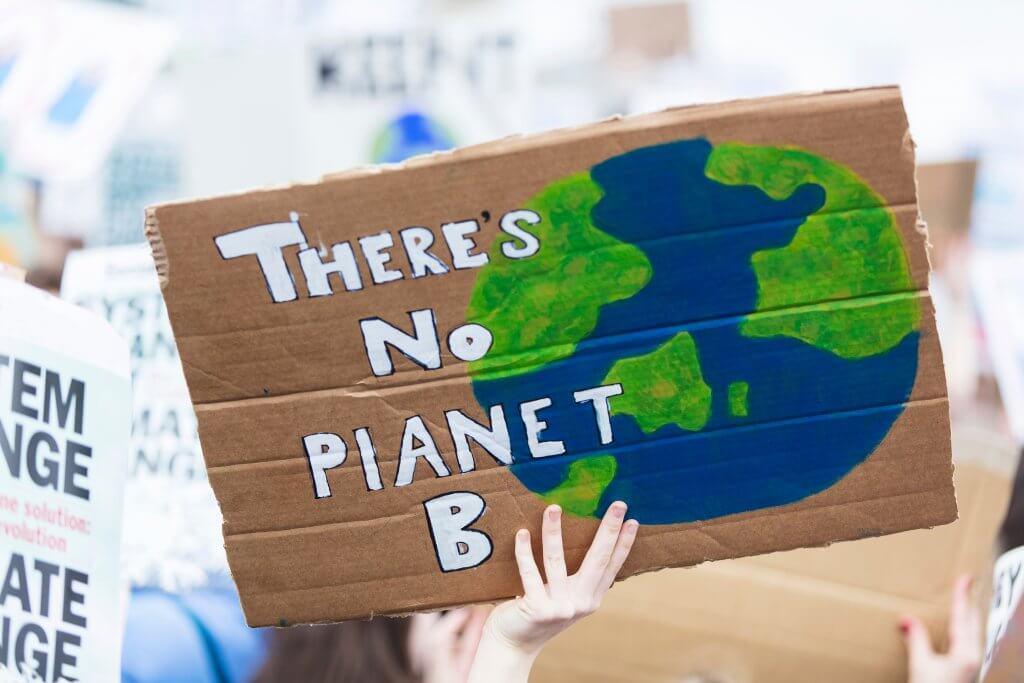
Choose eco-wise modes of transport
How we move from one place to another determines the carbon footprint we create. Not surprisingly, transport is the fastest growing contributor to climate emissions worldwide. Flights are one of the biggest carbon contributors by a longshot. The image below illustrates the best modes of transport depending on your trip.
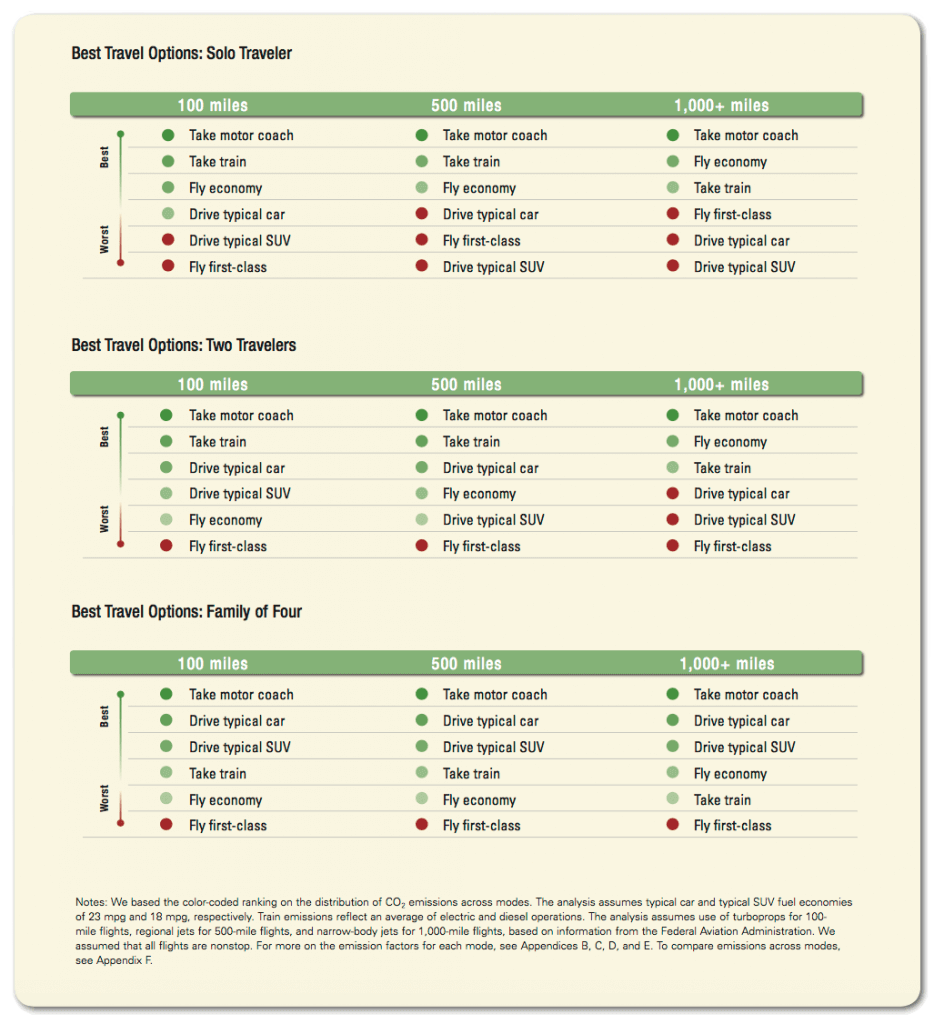
Now, it's not always possible to opt for the best choice. But it's good to be mindful of these alternatives. Which leads into the next point.
Take fewer flights
Flying less is hard, but really important. Omitting unnecessary flights is a good place to start. First, consider choosing non-flight options like car, bus, or train. There's no shortage of epic road trips, scenic train rides, or the connected experience of sharing a bumpy bus ride with locals around the world. After all, getting to and from airports, going through security, and delays or cancellations often make flying slower and even pricier!
Next, be strategic when trip planning. You can reduce your movement greatly, or at least make larger leaps with less impact. Consider visiting regions that are small and/or dense in activities, such as island countries like Sri Lanka, Taiwan, or Malaysia. Want to cover more ground? Look into in places that are well-connected by scenic modes of transport, such as by rail. Europe and Japan are a delight to explore from the window of a zipping train car.
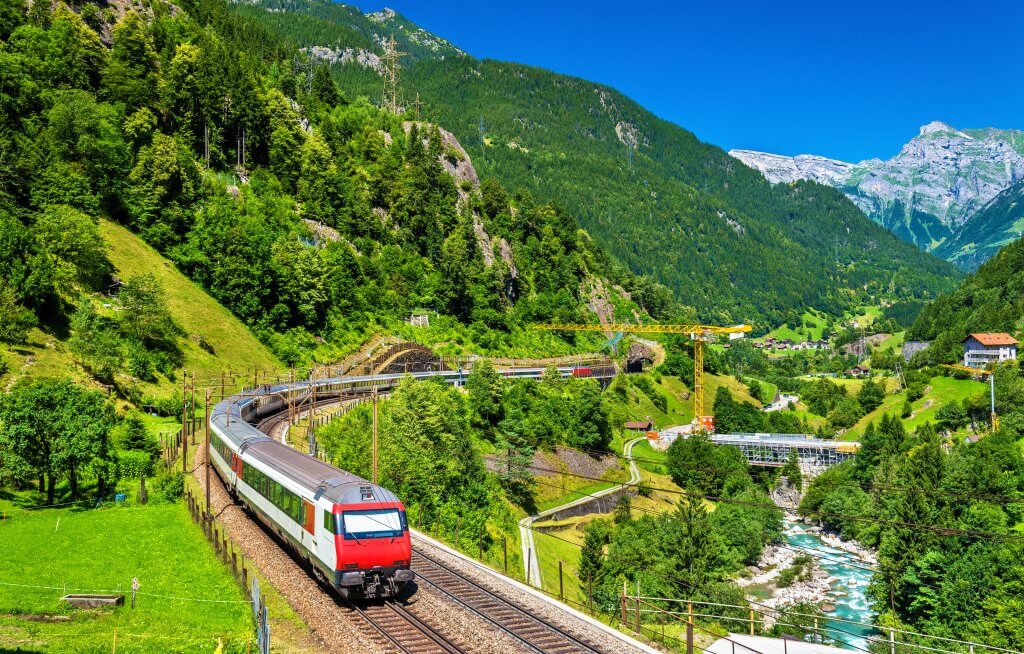
On the note of cheap flights, forego travel hacks that involve needless flights. Strategies like “skip lagging” (booking a return or indirect flight and intentionally skipping one of the legs) and “mileage runs” (hopping on flights to rack up airline points for free travel) are enormous ecologic no-no's.
When you do fly, reduce the impact
When you do fly, take direct flights when possible. Planes burn most of their fuel during take off, so the fewer flights the better. The same logic applies for short-distance flights, which have a larger CO2 footprint per passenger than long-haul ones.
On the note of direct routes, these often aren't cheap. But they can be. Error fares do come up, and you can always use travel points to fly direct for free. Follow airlines & sign up for newsletters to keep in the know-how. Jetstar in Australia, for instance, does an annual “return for free” sale, which is announced in advance via email.
Next, consider booking an open-jaw flight to eliminate back-tracking and extra transport. An open-jaw flight involves flying into one city and departing out another. If travelling Italy for example, perhaps you wish to explore the northern alps and the nation's capital, Rome. Why not then book an open jaw that flies into Milan and out of Rome? Bonus: this saves time in your itinerary.
On a positive note, some airlines have begun actively trying to be greener. You can be mindful of this when booking. Firstly, budget airlines tend to be the most eco-friendly, as they squeeze more passengers in a single flight. Other airlines like Etihad and Air New Zealand have reduced or fully eliminated their plastic use. Skyscanner has also begun to add notifications of which flights emit less CO2 emissions, a decision you can make when booking (information on how this is calculated here).
Finally, consider paying a “carbon offset fee” on your next flight. This fee goes towards eco-focused projects run by external groups (not the airline), such as as tree planting or strategies to trap methane gas. Admittedly, projects vary by airline and their known impact is questionable. By 2021, airlines will have to pay this fee themselves anyway, but in the meantime, it doesn't hurt to try.
Don't take cruises
You've seen (& probably smelt) the acrid singe that is cruise ship smoke. That alone is s silent red flag that cruise ships don't just bleed your wallet, they cost the environment, big time. Once aboard, a single passengers' carbon footprint triples in size compared to on land. Yikes.
Cruises are pretty awful on many levels – they worsen air quality, adhere to subpar standards on the use of toxic heavy fuel oils, and are regularly caught dumping sewage, trash, and fuel into oceans. They contribute little if any money during brief local stops made in what are often poor countries. Even in developed nations, cruises negatively impact local day-to-day living and are often protested (as Sydney-siders ourselves, we can attest to this).
In short: hopping aboard a ship is done at a serious cost to our planet and its residents, and it doesn't help developing nations.
Avoid resorts & all-inclusive vacations
All-inclusive vacations and resorts pose problems on an environmental and humanitarian level. First, resorts require development, which is often done at the expense of nature, wildlife, and ecologically fragile areas. Secondly, they draw in hoards of tourists into a small space. We know from overtourism that this harms wildlife, marine life, oceans, reefs, plus increases pollution. Beachcombing disrupts natural ecosystems which rely on shells for algae, food, and shelter. The list of environmental impacts from resort holidays is endless and this alone should be telling enough.
On a humanitarian level, resorts often take lots of tourist dollars but put back little into local economies, which are often quite poor. In hotspots like the Caribbean, nearly 80% of tourist spending leaves the host country. Is it really fair for visitor from a developed country to soak up the beauty of a foreign place, while barely putting a a cent back into the local struggling economy of those who live there? The cost of your holiday shouldn't be at the expense of depriving local poor economies. Think about it.



Stay local
Consider exploring what's in your own backyard. Look up hiking trails, scenic camping sites, historic cities or buildings, tourist hotspots, and epic road trips. You may be surprised to find UNESCO heritage sights in your area, state or national parks, and yet-to-be-discovered gems. Follow websites & social media on sites like TimeOut, local tourist destination boards, and seek out local city/regional blogs (BlogTO in Toronto, for example). There's very likely a plethora of discoveries you're completely unaware of.
Leave no trace
“Take only pictures, leave only footsteps”. Unfortunately, that adage is officially passé. Picking up trash and using recycle bins doesn't solve the fact that our planet is smothered in products that take centuries to break down.
Worse yet, a lot of the world's recycling isn't actually recycled. A great deal of waste doesn't even end up at its intended destination, as much of it blows off garbage trucks and bins straight into streets, rivers, and oceans. The film, “A Plastic Ocean” soberingly explores these and other fallacies behind our perceived solutions to saving the planet.
The single most effective way to leave no trace is to not create one in the first place. It means curbing your consumption. Avoid buying products you don't need, and reuse and repurpose what you have whenever you can. Beyond that, here are some quick tips to leave no trace:
- Avoid disposable products
- Opt for packaging-free items
- Bring reusable bags always
- Avoid products made of non-biodegradable materials
- Avoid cheap products that are likely to break down
- ALWAYS pick up every single item you drop, and hold onto all trash (including cigarette butts) until you find an appropriate place to dispose of it
Avoid plastic & disposables
Plastic is arguably the worst invention of our lifetime. It takes hundreds of years to decompose, is suffocating our oceans and wildlife, and is practically inescapable in our modern world. By 2050, there will be more plastic in the ocean than fish. Plastic sucks. Got it?
Better alternatives to use in your travels include stainless steel, ceramic, silicon, glass, hemp, and more. Remember though to focus on avoiding disposables in the first place – using a paper cup is worse than bringing your own travel mug from home (a KeepCup is a great option). Pack reusable goods – these are sustainable and the best option for the planet. On that note, let's delve a little deeper into how to cut your carbon footprint (including ditching plastic), when on the road.
Eat & drink for the planet
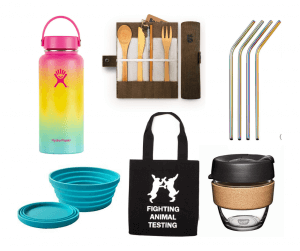
- Refuse disposables. Pack your own non-plastic cup, straw, cutlery, collapsible bowls, and reusable water bottles. Use them anywhere & everywhere – cafes, food stalls, restaurants. Many countries (even in Asia) are catching onto these trends – lead by example.
- Where water is unsafe to drink, use sustainable alternatives. Bringing water to a rolling boil for at least 1 minute is the simplest way to sterilize water of harmful germs. You can then fill a portable bottle to take with you. We love our Hydroflasks, which keep water hot or cold for 8+ hours. For a portable sanitization option, try the Lifestraw or Steripen (which we own). Note: none of the mentioned options here remove heavy metals (e.g. arsenic), so Google whether this is an issue where you're travelling.
- Choose snacks with plastic-free wrapping. Try fruit at a local market, fresh bakery pastries, or a food truck for plastic-free nibbles. This will challenge you to discover local tastes as opposed to 7-11 shrink-wrapped eats.
- Eat local food. The closer your food is to the source, the less carbon its spat out in transit. Canadian lobster in Thailand? Italian oranges in Japan? Before your next meal, think about how far your food has travelled to get to your plate. Food isn't just sustenance, it's a carbon footprint too.
- Eat less meat. Whether you're vegetarian or not, the general consensus agrees that eating less meat is a good for the environment. Animals, especially cows (& factory farming in general), require a lot of resources to survive – not to mention, cow farts are a major source of CO2 emissions. Seafood is another huge contributor to the ocean's plastic crisis (fishing nets making up nearly half of the ocean's plastic – not straws!). Supply meets demand so less meat consumption is the quickest solution since alternatives like hemp nets or sustainable farming aren't accessible yet globally.
Pack with the environment in mind
- Reuse, repurpose, buy used. When you want to replace something, always consider reusing &/or repurposing before buying new. You'd be surprised what can be saved with a thread & needle or superglue. Try to purchase used when you can. Hot tip: H&Ms worldwide accept used clothing donations (H&Ms are easier to find than op shops or charities in places like Asia). Donating is better than dumping (though don't use op-shops as an excuse for your shopping habit; up to 84% of donated clothes end up in landfills).
- Buy durable, sustainable clothing. Some materials last longer than others & cost less resources. Natural fabrics are best – cotton, linen, hemp, and wool – the latter being incredibly durable. Avoid buying items that you think will pill or stain easily (e.g. white), as this means you won't get much wear out of it. Buying items that are neutral or interchangeable with different outfits is another way to ensure this.
Use eco-wise toiletries



Toiletries are a huge source of disposable waste at home and abroad. Luckily, isn't hard to switch to sustainable products and in the long-haul is actually cheaper. Win win! Here are some suggestions:
- Stop using hotel disposables. Thrifty as it is, foregoing hotel bathroom disposables is an easy way to curb your plastic use on the road. How to make your shampoo & soap last for your trip then? See next point!
- Use sustainable shower products: LUSH products check all the boxes of being sustainable, packaging-free, & more. In the long run, shampoo & soap bars are far cheaper than bottled liquids. How to prevent the age-old mushy soap problem? I've had 100% success using Muji's breathable portable soap dish (just empty any water that collects in it post-shower). Or you can use Lush's tins and tilt them on an angle to promote drainage. Fair warning: LUSH is pricey due to its ethical ingredient sourcing (you can make your own if you wish or buy other brands) .
- Sustainable face wash + make-up removal: Switch to reusable makeup pads or washcloths. You can wash pads in the shower or toss into a zippered mesh bag with your laundry. For face washing products, we love LUSH's Ultrabland – which doesn't even require running water to use (great for camping). There are many other eco-brands out there, just find what works for you and the environment.
- Eco-safe sunscreen. Use a sunscreen that isn't toxic to oceans, reefs, and wildlife (there are many many ingredients to avoid – oxybenzone and octinoxate are confirmed to bleach coral). Choose a brand you like – Blue Lizard is great, affordable, and 100% reef-safe.
- Consider sustainable period products. Period panties and menstrual cups have become all the rage and solve a huge monthly disposable issue faced by women globally. They cost far less than a year's use of tampons and pads. I use the Divacup & panties and can attest both are fantastic. I recommend using the panties for light flow only &/or as a back-up with the cup. More tips on using panties here and cups here.
Don't perpetuate human suffering
Tourism inflicts human suffering in ways we often don't know or see. The shows we go to see, the products we buy, and the donations we make can sometimes cause more harm than good. Here are some quick tips to help humanity on your next trip:
- Don't give money to child beggars. As devastating as it is to see young children and infants in the streets, giving them money only further supports keeping them out of school. It's well-established that education is the key to stopping the poverty trap, so it's incredibly important that children aren't encouraged to street beg and stay out of schools. What to do instead? Look up local charities that help make education more accessible to poor children.
- Do your research before engaging in the sex industry. Whilst there are empowered women who are decidedly sex workers, human trafficking does take place as a means to satisfy the ever-growing sex tourism industry. Whether it be strip clubs or a ping pong show in Thailand, inform yourself on the likelihoods of abuse and trafficking where you're visiting, always keeping the interests of service providers at your moral forefront.
Support locals & embrace other cultures



When McDonald's and Starbucks begin to overtake local shops and cafes, this usually marks the beginning of a slow and painful cultural death. Remember, supply meets demand, and this is exactly why it's important to shop and eat local whenever you can.
If you wish to buy souvenirs, always look for products that are locally made – not produced overseas (e.g. China). Supporting locals not only puts money back into the country you're in, but eliminates a ton of CO2 emissions output by products flown in from overseas factories.
Consider trinket-shopping at antique shops or markets where locals go. There are an increasing number of fair-trade souvenir shops affiliated with charities – a quick Google search should yield results. Usually the proceeds go to charity and/or the goods are made by women, minorities, disabled people, and so on. We've found some really beautiful artwork and jewelry this way.
Look into finding ethical indigenous work or tourism in your travels. Nearly all countries on earth (save Antarctica!) have indigenous populations – many places that you wouldn't be aware of. Google your destination and inform yourself of its initial residents. In many places, you can find unique indigenous art galleries and shops, as well as performances showcasing traditional culture, music, and dance.
When dining, seek out independent shops over chains. The food is always better with the locals, anyway! The same goes for accommodation. A family-owned hotel or Airbnb is far better than handing your dollars to million-dollar chains (though Airbnb is admittedly becoming an issue in itself). Finally, don't forget the basics such as learning a few local words at minimum. Not only will this improve your overall experience with locals, but it's also simply respectful of being a visitor in a foreign land.
Don't support animal cruelty




There are countless ways that animals suffer at the expense of tourists. While some things like horrifically tiny cages for animals at a Japanese zoo may seem obvious, there are many others you probably don't realize inflict harm, such as the rising trend of animal cafes.
“The average tourist doesn’t have the capacity to identify cruelty to animals because sometimes that cruelty is not overt.”
– Born Free USA
How to tell if an attraction involves animal cruelty? Here are warning signs:
- Involves animals interacting with tourists, such as posing for photos, riding, petting, or feeding. Wild animals don't naturally interact with humans, so these acts are made possible by capturing, “training” (e.g. hitting, electric prods, bullhooks), bribing with food, sedating with drugs, and more.
- Involves inhumane confinement and/or unnatural habitats
- Actively partakes in breeding, buying or selling of animals
- Has no accreditation (all ethical zoos, sanctuaries, and aquariums should have this – see next). Read how to tell if an animal sanctuary is real here.
What can you do to help prevent animal suffering?
- Check for accreditation of zoos and aquariums and animal sanctuaries before visiting. That said, apply common sense and consider the above warning signs. If something doesn't feel right, don't do it.
- Raise awareness of what animal cruelty is to your friends and family, whether in your hometown or abroad.
- Boycott attractions that involve animal cruelty. Feel free to tag and tell the attraction itself on social media and/or local tourism boards.
- Make animal protection organizations such as PETA aware of cruel attractions as you see them. These and other organizations have mighty platforms to shout from.
- Write reviews on Google & TripAdvisor to inform other travellers of cruelty taking place and to boycott attractions.
- See animals in their wild, uncaged environments such as on safaris and hikes.
- Partake in tourism that promotes animal welfare such as visiting reputable sanctuaries and volunteer centres.
Acknowledging red flags makes a glaringly obvious point here: most animal attractions are cruel. Whilst animal sanctuaries and conservation efforts are key to protecting and rescuing wildlife, the majority that are accessible to tourists do so at the expense of wildlife welfare.
What about animal cafes?



The trend of cute animal cafes is exploding – from sipping coffee with hedgehogs to snapping selfies with cuddly cats. Be aware that most of these cafes aren't run with the best interests of the animals – this is especially true in Asia. Many cafes are coming under question by organizations like the SPCA and Cats Protection. The SPCA, for instance, has stated it would prefer people visit animal shelters than cafes for kitty cuddles.
The other issue here is that many of these establishments promote breeding, as purebred animals are most attractive to customers. This contributes to the killing of shelter animals, of which there are staggering amounts globally. Furthermore, these animals do not have a choice but to be subjected to continuous photographing, feeding, patting, and day-long confinement in small spaces densely filled with people and animals. Obesity, diabetes, and mental distress are just some of the issues these animals endure.
Under certain circumstances, cat cafes are SPCA-approved. For instance, there are cafes that have adoptable cats only in a healthy cat-to-cat and cat-to-human ratio. Use your best judgment and do a Google search of ethical practices before visiting your desired cafe.
Don't partake in over-tourism
Far too many corners of the globe have been stampeded by tourists. This has squashed cultures, suffocated wildlife, increased pollution, and hampered local's day-to-day living. Just this year, Barcelona took to protesting against travellers, even attacking a tour bus. Research ahead of time and if travellers aren't wanted, don't visit.
The good news is, the world is enormous and more accessible than ever. In fact, it's often easy to visit alternatives that scratch the itch you're after. Love France's medieval castles? Why not castle-hop in Romania? Or open your eyes to something you never even thought of. Read lists of off-the-radar gems or discover your own (seriously, just peruse Google Maps and start searching places you aren't familiar with!).
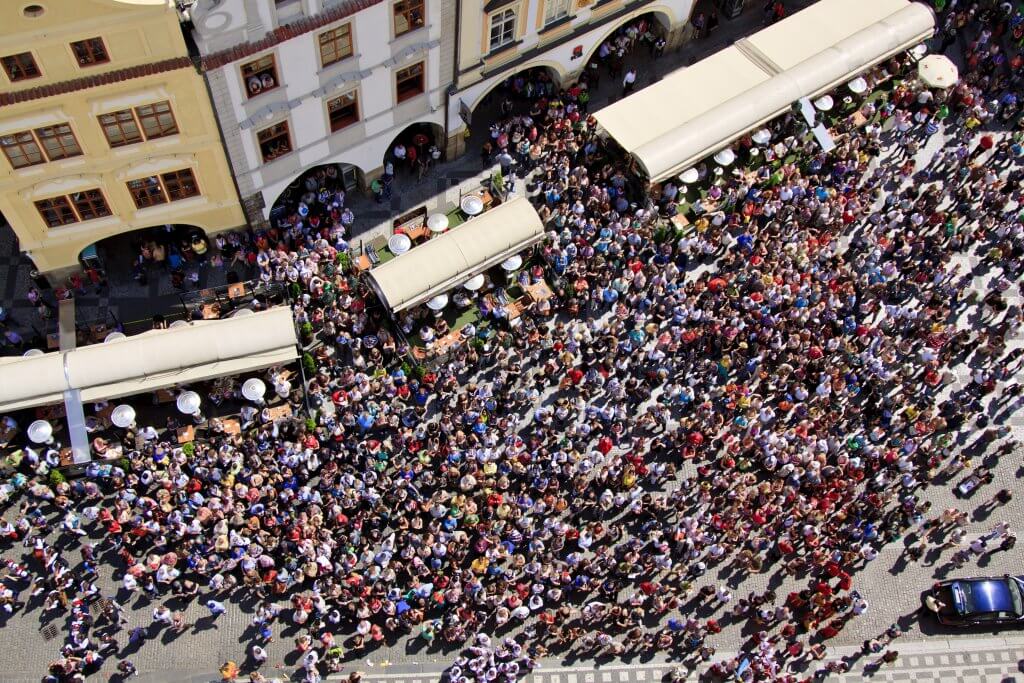
Travel slowly
Slow travel is one of our top tips to globetrotting affordably. Less movement means less transport to pay for, more nights at a single location, and long-stay discounts (usually for 1 week or more).
A slower pace allows for discovery of hidden gems, mingling with locals, escaping the tourist track, and of course, far less carbon emissions. Make the goal of your trip to experience the destination fully, not add checkmarks to a country count list.
Consider trips that help the environment
Eco-tourism has boomed in the past few decades, though as with animal sanctuaries, that label alone doesn't ensure it's helping the planet. As always, use your best judgment.
Volunteering, farm work (e.g. WWOOF), helping at animal shelters, farmstays, partaking in beach clean-ups, and choosing activities that support ecotourism are just some ways you can help your travels make a positive impact.
With volunteer work (a.k.a. “voluntourism”), always be scrutinous of whether your efforts are focused on the people receiving help, and not just fanning your own ego. Think about the money spent and CO2 emissions generated (e.g. flights, lodging) – which can sometimes be thousands of dollars – and reflect on how much further that would go if given directly to communities. “Teach a man to fish” is the ideal approach of any reputable charity. The “white saviour complex” in which foreigners come in, start a project then leave when it's complete isn't sustainable. Any program that makes a community dependent on foreign aid is simply a waste of resources. If you truly wish to help, be scrutinous!
The Thrifty Gist
- Our movement anywhere emits CO2 – airplanes being the biggest culprits by far
- Consider slow travelling, visiting small countries, or regions that are dense with attractions to minimize movement
- Reduce flying whenever possible. Consider train, bus, or driving. When you do fly, fly direct and book open-jaw flights if it minimizes backtracking on your trip.
- Don't support animal cruelty by attending shows or attractions that don't have ethical approval
- Pack eco-friendly toiletries, clothing, and reduce, reuse, and repurpose whenever you can!
- Support local culture by buying, eating, and staying at locally-run places


